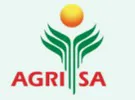Agri SA has called on the government to limit any increase in the National Minimum Wage to an inflation-related increase. The sector has faced significant headwinds in recent years which threaten the viability of many farms. Agri SA also recognises the cost pressures on all consumers in South Africa. and therefore, while the need for an increase is clear, it needs to be sustainable for the country’s farming operations to ensure food security for consumers.
Agri SA has proposed an increase in the national minimum wage of consumer price inflation (CPI) minus 2%. This represents a substantial increase while also accounting for the especially difficult economic context in which the sector finds itself.
The agricultural sector currently employs around 874 000 workers. The sector has grown employment to above pre-pandemic. These figures clearly indicate the critical role of agriculture in creating employment opportunities in South Africa, but this capacity will come under pressure if the increases in the national minimum wage continue to be untethered from economic reality.
According to data from the Bureau for Food and Agricultural Policy (BFAP), the average annual inflation on farm labour has risen by 11,6% since 2012, while the general CPI was around 5% over the same period. Until now, the sector has been able to absorb these increases largely due to the boom experienced by labour-intensive horticultural industries in the pre-pandemic years. But these industries now face significant pressures too, with BFAP projecting price decreases over the next decade.
The trend of above-inflation increases in the national minimum wage has short- and long-term ramifications for the future economic contribution of the sector to South Africa’s gross domestic product (GDP).
Given the inflationary pressures on the agricultural sector as well as the prolonged period of above-inflation wage increases in the sector, Agri SA has proposed an increase in the national minimum wage of CPI minus 2%.
For more information:
Johan Wege
Agri SA Centre of Excellence
C: +27 082 337 4520
Christo van der Rheede
Agri SA
C:: +27 083 380 3492
